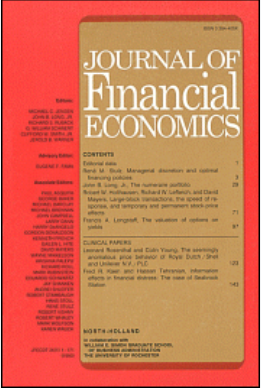基于令牌的平台管理
IF 10.4
1区 经济学
Q1 BUSINESS, FINANCE
引用次数: 0
摘要
我们建立了一个模型,将传统股东所有平台的治理与发行代币平台的治理进行比较。传统的股东治理结构会导致平台从用户身上抽取租金。为其服务发行代币的平台可以减轻这种租金抽取,因为租金抽取会降低平台所有者的代币收益。但是,发行 "服务代币 "的缓解措施只有在平台承诺不稀释 "服务代币 "的情况下才会有效。发行 "混合代币",将平台的服务和利润捆绑在一起,即使没有事前承诺力,也能提高效率。最后,相比之下,赋予用户对平台政策的投票权可以重新分配盈余,但不一定能提高效率。本文章由计算机程序翻译,如有差异,请以英文原文为准。
Token-based platform governance
We develop a model to compare the governance of traditional shareholder-owned platforms to that of platforms that issue tokens. A traditional shareholder governance structure leads a platform to extract rents from its users. A platform that issues tokens for its services can mitigate this rent extraction, as rent extraction lowers the platform owners’ token seigniorage revenues. However, this mitigation from issuing “service tokens” is effective only if the platform can commit itself not to dilute the “service token” subsequently. Issuing “hybrid tokens” that bundle claims on the platform’s services and its profits enhances efficiency even absent ex-ante commitment power. Finally, giving users the right to vote on platform policies, by contrast, redistributes surplus but does not necessarily enhance efficiency.
求助全文
通过发布文献求助,成功后即可免费获取论文全文。
去求助
来源期刊

Journal of Financial Economics
Multiple-
CiteScore
15.80
自引率
4.50%
发文量
192
审稿时长
37 days
期刊介绍:
The Journal of Financial Economics provides a specialized forum for the publication of research in the area of financial economics and the theory of the firm, placing primary emphasis on the highest quality analytical, empirical, and clinical contributions in the following major areas: capital markets, financial institutions, corporate finance, corporate governance, and the economics of organizations.
 求助内容:
求助内容: 应助结果提醒方式:
应助结果提醒方式:


